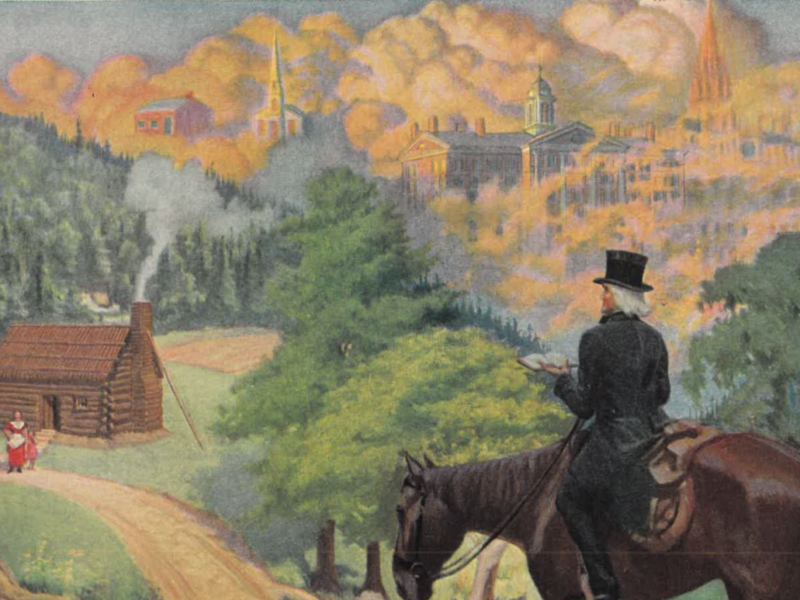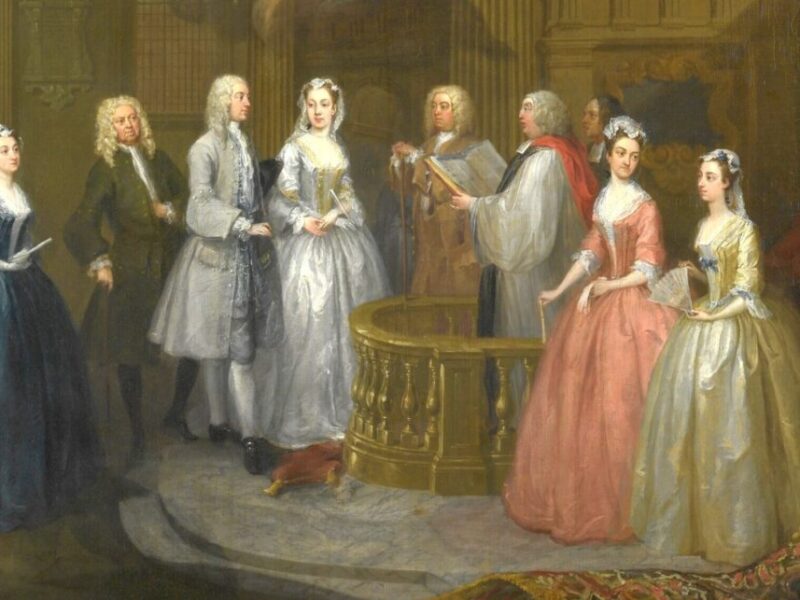- Come Thou Long Expected Jesus – The First Sunday in Advent
- Lo! He Comes with Clouds Descending – Second Sunday in Advent
- On Jordan’s Bank the Baptist Cries – Third Sunday in Advent
- O Come, O Come, Emmanuel – The Fourth Sunday in Advent
- What Child Is This? – Christmas Day
- Angels from the Realms of Glory – The Sunday after Christmas Day
- Joy & Wonders – The Feasts of Circumcision & Epiphany
- Nonconforming, Ever Transforming – The First Sunday after Epiphany
- Songs of Thankfulness and Praise – Second Sunday after Epiphany
- Hail to the Lord’s Anointed – The Third Sunday after Epiphany
- The Embodied Temple: Candlemas
- Kept by Christ – The Epiphany of True Religion – Fifth Sunday After the Epiphany
- Exiles on the Run – Septuagesima Sunday
- Firm Foundations – Sexagesima
- Given to Shriven: Quinquagesima
- Life, Love, & Lent: Ash Wednesday
- Forty Days, Forty Nights – First Sunday in Lent
- Just As I Am – The Second Sunday in Lent
- “Lightning” the Way – The Third Sunday of Lent
- The Comfort of Thy Grace – The Fourth Sunday in Lent
- O Love, How Deep – The Fifth Sunday in Lent
- When I Survey – The Sunday Next before Easter
- O Sacred Head, Embodied Sacrifice – Good Friday
- Questions – Easter Even (Holy Saturday)
- Hymn of Joy – Easter Day
- No Quarter – The First Sunday after Easter
- Shepherd of the Sheep – The Second Sunday after Easter
- Strangers and Pilgrims – The Third Sunday after Easter
- Every Perfect Gift – The Fourth Sunday after Easter
- Walk the Fields – Rogation Sunday
- Hail to the King – Ascension Day
- Leave Us Not Comfortless – The Sunday after Ascension Day
- Lighten Our Darkness – Whitsunday
- Keep Us Steadfast in This Faith – Trinity Sunday
- Nothing Ordinary About It – The First Sunday after Trinity
- The Confession – St. Peter’s Day
- The Joy Over One – The Third Sunday after Trinity
- Turn and Be Turned
- Worn, Not Out
- Deadbeat to Sin for Death is Beaten
- Nourishment – The Seventh Sunday After Trinity
- Profitable for Us
- Enabled: The Ninth Sunday After Trinity Sunday
- To Love That Word: St. Bartholomew’s Day
- Partakers of thy Heavenly Treasure – The Eleventh Sunday after Trinity
- More Ready to Hear Than We Are to Pray – The Twelfth Sunday after Trinity
- Laudable Service
- The Taxman
- Seek Ye First
- God Hath Visited His People
- Prevent Us & Follow Us
- Withstand
- Direct and Rule Our Hearts
- Knit Together
- Not as Fools
- Breaking Winter’s Silence
- Devoutly Given
- Jordan’s Shores
As with gladness men of old
did the guiding star behold;
as with joy they hailed its light,
leading onward, beaming bright;
so, most gracious God, may we
evermore be led to Thee.
The First Sunday after the Epiphany comes in powerfully. St. Paul’s epistle grabs us by the collar and makes frank that which we would rather make muddy: The manifestation of Christ either conforms us to our sin or confronts us with repentance.
Our Lord Jesus teaches, “Let your ‘yes’ be ‘yes’ and your ‘no,’ ‘no.’ for whatever is more than these is from the evil one.” (Matthew 5:37, NKJV). This does not prevent laity and ministers alike from never ceasing in clouding the clear words of St. James, “Ye adulterers and adulteresses, know ye not that the friendship of the world is enmity with God? Whosoever therefore will be a friend of the world is the enemy of God.” (James 4:4, KJV).
As with joyful steps they sped
to that lowly cradle-bed,
there to bend the knee before
Him whom heav’n and earth adore;
so may we with willing feet
ever seek Thy mercy-seat.
Therefore, let us attend to the clear word of Holy Scripture from St. Paul’s letter to the Romans, “be not conformed to this world: but be ye transformed by the renewing of your mind, that ye may prove what is that good, and acceptable, and perfect, will of God.” (Epistle lesson, Romans 12:2, KJV). The Christian’s temptation is to “go along to get along” in the multicultural society we find ourselves in – as though this was something unique to us. Yet, St. Paul, the Apostle to the Nations, thrives in a world where cultures, language, and religion are intermingling, conflicting, and highlighting his nonconformity to Roman society.
Christians living in the twenty-first century West are especially called to nonconformity with a society where a culture of death and despising its humanity reigns. We see society deforming from order to chaos, from humanity to beastliness. The world is acting more like a den of jackals fit for the animal kingdom instead of dwelling in the city of Zion in God’s eternal kingdom.
Today’s Gospel lesson draws us near and inside the temple as we encounter a twelve-year-old Jesus. St. Luke records an instance after the Passover feast when St. Joseph and St. Mary the Virgin accidentally lose Jesus. As an aside, it comforts me as a parent that even the Holy Family lost sight of the Holy One of Israel on their journey home. However, in all seriousness, how often do we Christians lose sight of where Christ is? We sometimes seek a divine sign, we ask for a voice to speak, or we look for confirmation from people in the world, instead of looking for our Savior who all along was right where He should be. Yes, our Lord is always near and always present, even when we least expect it and oftentimes where we least expect Him.
When Jesus is found by the Holy Family within the temple, St. Mary questions Him, “Son, why hast thou thus dealt with us? behold, thy father and I have sought thee sorrowing.” (Gospel lesson, Luke 2:48, KJV). Christ gently replies, “How is it that ye sought me? wist ye not that I must be about my Father’s business?”
We forget far too often we may seek Christ in the Holy Words of Holy Scripture. He is always present and always available when we hear the divine words He inspired through His Holy Spirit within Holy Scripture. Like His mother, the Virgin Mary, let us attend to the Words of life and keep “all these sayings in her heart.” (Luke 2:51, KJV). Where the Father is – there you shall find the Son. How shall we discern God’s will? – by looking at His image, the Son. Where do we find the Son? – in His temple – the enfleshed temple of God “sitting in the midst of the doctors, both hearing them, and asking them questions.” (Luke 2:46, KJV). The teachers sit and are taught by the Christ-child, the very Word of God whom the temple was erected to worship.
As they offered gifts most rare
at that cradle rude and bare;
so may we with holy joy,
pure, and free from sin’s alloy,
all our costliest treasures bring,
Christ, to Thee, our heav’nly King.
This evil age seeks to create confusion, chaos, and corruption, so it might conform us to the world. The zeitgeist wails against the kingdom of God because the evil one rages as the nations seek the true King. The Magi and their journey to see the Christ-babe is the beginning of Satan’s end. Therefore Satan and his devils tempt and try to tame Christians into becoming weak, silent, and ineffective – but the Word of God is a sword and He holds the winnowing in His hand and sets this world on fire in the power of the Holy Ghost. Now is not the time to be silent shepherds at the creche of Christ, but to be stalwart sojourners evading the Herods of this world to worship the true King and to bring glad tidings back East of He who transforms all. The Magi see the glad tidings of a promised King in Judah, and they faithfully begin the long trek toward Bethlehem. We too are called to sojourn and be transformed by what we see – nay, by Whom we meet.
Transformation is this Sunday’s theme. For Christ does not leave us as we are – thanks be to God – but called us with a purpose and for a vocation. St. Paul urges us “Be ye transformed by the renewing of your mind, that ye may prove what is that good, and acceptable, and perfect, will of God.” (Romans 12:2, KJV). Discipleship at Christ’s feet comes at the cost of nonconformity, even enmity with this world. For “If ye were of the world, the world would love his own: but because ye are not of the world, but I have chosen you out of the world, therefore the world hateth you. Remember the word that I said unto you, The servant is not greater than his lord. If they have persecuted me, they will also persecute you; if they have kept my saying, they will keep yours also.” (John 15:19-20, KJV). St. Paul commends transformation through renewing how we think. Indeed, changing our minds is repentance. We must repent from the world and turn towards Christ because only then shall we demonstrate “what is that good, and acceptable, and perfect, will of God.” (Romans 12:2, KJV).
The “perfect, will of God” which we seek is found bound within the God-man, Christ Jesus our Lord. Let us take up not only Holy Scripture but also holy living. Let us seek daily the perfect will of God by learning how to pray through the words of Scripture, found within our very own prayer book tradition. Cry out honestly, brutally, and simply in our brokenness to the God who mends us. He is a gracious Lord who did not forsake the nations eternally, but who promised Abraham that he would be a father to many nations, and through Abraham’s offspring – that is Christ – God fulfilled this promise by incorporating the nations into His Son’s pierced and broken body, the Church. By virtue of our faith and baptism into Christ, the Jew and Gentile are one body, one man, one flesh, united into the New Adam: Jesus. “For as we have many members in one body, and all members have not the same office: so we, being many, are one body in Christ, and every one members one of another.” (Epistle lesson, Romans 12:4-5, KJV).
Holy Jesus, ev’ry day
keep us in the narrow way;
and, when earthly things are past,
bring our ransomed lives at last
where they need no star to guide,
where no clouds Thy glory hide.
When we falter in words of prayer, take up today’s collect: “O Lord, we beseech thee mercifully to receive the prayers of thy people who call upon thee, and grant that they may both perceive and know what things they ought to do, and also may have grace and power faithfully to fulfil the same, through Jesus Christ our Lord. Amen.” Our gracious Lord will not desert us, He hears our prayers and sends His Holy Ghost to transform and renew us. The manifestation of Christ is the beginning of the transformation of humanity into a new humanity. We are not provided a self-help book in the Scriptures nor given a three-step list of resolutions for a new year to achieve. Instead, God gifts His people of faith with God Himself. Our brokenness is met by His wholeness. Our disease is met by His healing. Our uncleanliness is purified by His holiness. The Spirit of God is poured out like a wildfire from on High, and if we simply receive this gift, then we shall be “by the mercies of God,” made ready so “that ye present your bodies a living sacrifice, holy, acceptable unto God, which is your reasonable service.” (Epistle lesson, Romans 12:1, KJV).
God demands nothing unreasonable, simply the reasonable service of sacrificing ourselves to the One who purchased our freedom from an enslaved world. We are called to respond to this gift with love – an everlasting love of fealty, loyalty, and fidelity to the One who is never unfaithful towards His people whom He suffered and died for. Every Sunday at Holy Communion, we echo in prayer this same language from the epistle lesson (Romans 12:1), when we pray:
O Lord and heavenly Father, we thy humble servants entirely desire thy fatherly goodness mercifully to accept this our sacrifice of praise and thanksgiving; most humbly beseeching thee to grant, that by the merits and death of thy Son Jesus Christ, and through faith in his blood, we and all thy whole Church may obtain remission of our sins, and all other benefits of his passion. And here we offer and present unto thee, O Lord, ourselves, our souls and bodies, to be a reasonable, holy, and lively sacrifice unto thee; humbly beseeching thee, that all we, who are partakers of this holy Communion, may be fulfilled with thy grace and heavenly benediction. And although we be unworthy, through our manifold sins, to offer unto thee any sacrifice, yet we beseech thee to accept this our bounden duty and service; not weighing our merits, but pardoning our offences, through Jesus Christ our Lord; by whom, and with whom, in the unity of the Holy Ghost, all honour and glory be unto thee, O Father Almighty, world without end. Amen.
We give to God, that which already belongs to Him. He takes what He has redeemed, and He gives us back as renewed and transformed humanity – modeled after the New Adam, His Son, the Lord Jesus Christ. He feeds us, with the Bread of heaven, the body and blood of our Lord Jesus Christ – the very sacrifice we need and could never earn nor provide ourselves. It is all grace because Epiphany itself is grace. It is the olive branch and peace to the Gentiles and every epiphany lesson we hear in Epiphanytide is another instance of God’s graceful manifestation: to the Jew first, then the Gentile.
May we make our own lives living manifestations of who Jesus Christ is and what He has done for us, to us, and through us.
In that heav’nly country bright
need they no created light;
Thou its Light, its Joy, its Crown,
Thou its Sun which goes not down;
there for ever may we sing
alleluias to our King.





'Nonconforming, Ever Transforming – The First Sunday after Epiphany' has no comments
Be the first to comment this post!